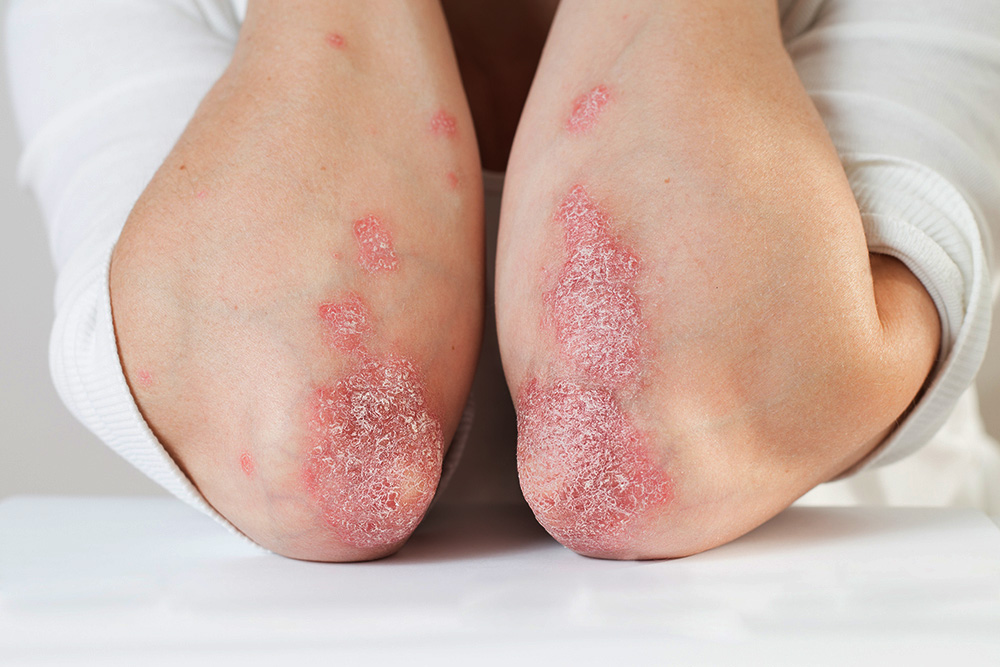Psoriasis

Psoriasis is a very common, chronic skin condition that causes patches of itchy, scaly inflamed skin. Psoriasis most commonly affects the scalp, knees, elbows, hands, feet and back. In some cases, the fingernails and toenails are also affected.
The symptoms of psoriasis can vary based upon on its severity, but in the most complex cases may be life altering and decrease quality of life by affecting the ability to perform activities of daily living. While the itching and pain are uncomfortable, some of the worst effects of psoriasis can be emotional. People with severe psoriasis can also become self-conscious due to the physical appearance of psoriatic lesions and thereby feel socially- isolated and depressed. Psoriasis affects over 3% of the adult US population. Although there is currently not a cure available for this condition, there are a number of excellent and effective treatment options which can keep it very well-controlled in the majority of patients. Dr. Gammon has extensive experience with the most up-to-date topical, oral, and biologic therapeutic options for psoriasis and we’d be happy to schedule you for a consultation to help diagnose and/or better treat your psoriasis. We are also fortunate to have a phototherapy (narrow band UVB) booth available to use for our psoriasis patients.
What Causes Psoriasis?
Although psoriasis usually appears as a skin condition, it has been recently revealed to be a systemic disease which can affect the entire body. A dysregulation of the immune system results in an overactive population of immune cells called T cells. When overactivated, the T cells cause inflammation in the skin, joints and blood vessels.
Psoriasis of the skin or nails may look like a rash or fungus, but you can’t catch it from another person, and you can’t give it to anyone else. You also can’t spread it from one body part to another by touch. Experts now know that a susceptibility to getting psoriasis can be inherited. If it runs in your family, your chances of developing psoriasis are higher. Fortunately, as we have learned more about the immune pathways involved in psoriasis, more safe targeted therapies have become available to give better relief for psoriasis patients.
Progression of Psoriasis
Psoriasis develops differently in each person. While some people may only experience occasional and mild psoriasis symptoms for their entire lives, others may suffer with severe symptoms on a regular basis. Flare-ups of psoriasis can be triggered by various infections, increased stress levels or even a change of climate.
Untreated, severe forms of psoriasis may be dangerous. Although it happens very rarely, if lesions cover enough of the body, it’s possible for the immune system to become overwhelmed trying to fight off infections. This increases your risk of developing serious bacterial infections. Be sure to see your dermatologist immediately if your psoriasis spreads to cover large parts of your body or if you show signs of infection, such as fever.
Treatments for Psoriasis
- Narrow Band UVB (phototherapy)
- Topical Creams
- Oral Medications
- Biologic Therapies
We Care About You
© 2024 • All Rights Reserved • Juniper Dermatology
